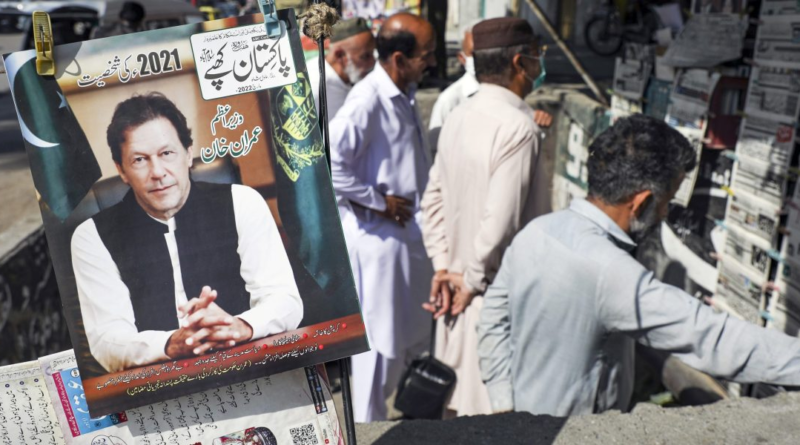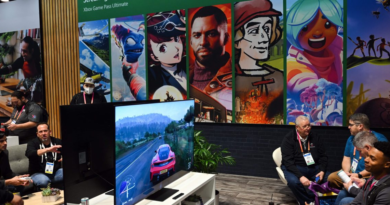Young, middle class Pakistanis shock regime by voting for jailed former Prime Minister Imran Khan's party with inflation at 28%
Imran Khan was jailed and silenced. His colleagues were barred from contesting Pakistan’s election under their party’s name. They weren’t even allowed to use its famous cricket bat symbol.
Yet the candidates who are part of Khan’s Pakistan Tehreek-e-Insaf party — running as independents — put forth a strong showing in the contentious poll. Independents, mostly backed by the former premier, won 100 of 265 contested lower-house seats, with results for 12 yet to be released. Nawaz Sharif’s Pakistan Muslim League-Nawaz took 71 seats, while Bilawal Bhutto Zardari’s Pakistan Peoples Party had 54.
The independents’ strong performance points to Khan’s enduring popularity among the nation’s 129 million registered voters, many of whom are struggling to make ends meet amid the fastest inflation in Asia. It also highlights public disillusionment with the status quo of Pakistani politics, represented by the parties of the Sharif and Bhutto clans.
“That PTI-backed independents are leading right now despite all the hurdles their party has faced in the run-up to the election and in campaigning is a huge deal for Pakistan,” said Madiha Afzal, a foreign policy fellow at Brookings Institution. “It shows the power of Khan’s base, Pakistan’s young, middle-class demographic.”
Khan’s loyalists won most seats and have the first right to form a government, PTI party Chairman Gohar Ali Khan said at a briefing on Saturday, While all parties fell short of winning a majority, Sharif on Friday spoke to cheering crowds from his stronghold of Lahore, claiming victory and vowing to speak to Bhutto Zardari’s PPP on forming an alliance to lead the country.
Sharif’s move may be welcomed by the powerful military which has clashed with Khan. Analysts say three-time former premier Sharif, who returned from exile in London last year and acquitted of corruption charges, had the blessings of the military for the top job. Bhutto Zardari, 35, is the son of Benazir Bhutto, a former leader who was assassinated in 2007.
“Pakistan’s diverse polity and pluralism will be well-represented by a unified government of all democratic forces imbibed with national purpose,” the military said on Saturday. “Elections and democracy are means to serve people of Pakistan and not ends in themselves.”
The elections were marred by terrorist attacks in remote provinces bordering Afghanistan that killed dozens. On polling day, Pakistan suspended mobile phone services nationwide, saying it was necessary for maintaining order. The US and European Union expressed concerns about the mobile phone service suspension and polling irregularities.
Any post-election instability and unrest would weigh on an economy already challenged on several fronts. Inflation is running at 28%, and the latest International Monetary Fund bailout program is set to expire in March, suggesting the next leader will have to negotiate a new deal. He will also have to navigate complex ties with the US and China, rising domestic terrorism and tense relations with neighbors including India, Afghanistan and Iran.
Bank worker Nazir Arsalan, 32, said he voted for a Khan-backed independent as the previous government failed to control inflation and he couldn’t lead a “respectable life.”
Khan, who captained Pakistan to victory in the 1992 Cricket World Cup, is the country’s most popular politician. He was ousted from power in April 2022 after clashing with the military. He then began staging protest rallies, breaking a taboo by openly criticizing the army, until the government and the military clamped down.
He’s now in prison in Rawalpindi, where the military has its headquarters. He recently received sentences in three more cases, where charges included leaking state secrets and having an unlawful wedding.
In an AI-generated speech after the election, Khan criticized Sharif as a “dishonorable man” for claiming victory despite winning fewer seats.
“My Pakistanis, you have laid the foundation for your freedom by voting yesterday,” Khan said in the speech posted on his party’s website. “I congratulate you all for your 2024 election victory.”
Most of Khan’s independents are political novices as many senior figures left the party after a crackdown by the military and government. Some may be poached by other parties as horse-trading begins after the hung parliament. It’s not unusual for politicians in South Asia to shift sides after polls.
It may take weeks for a government to be finalized. But any alliance between the Sharif and Bhutto clans would probably anger the millions of Khan’s young supporters, who hung on to the former cricket star’s populist rhetoric and see those parties as representing the old ways of Pakistani politics.
“Imran is an honest man,” said Zakir Khan, 35, a supporter from a poor area of commercial capital Karachi. “We have tried and tested all the others.”




